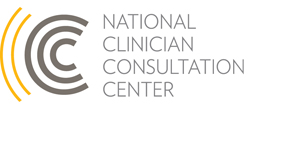National PEPline Recommendations on Percutaneous Exposures to SARS-CoV-2 in Occupational Settings
QUESTION
Is there a risk of percutaneous SARS-CoV-2 transmission via blood following a needlestick or other sharps injury involving a source person who has or might have SARS-CoV-2, the virus that causes COVID-19?
RESPONSE
SARS-CoV-2 is not considered a blood-borne pathogen. SARS-CoV-2 is a respiratory virus; respiratory viruses are not known to be transmitted by blood. Although percutaneous transmission of SARS-CoV-2 from blood may be a theoretical concern, the risk of such an occurrence is believed to be negligible and no cases have been reported to date.
References
- Food and Drug Administration. Coronavirus Disease 2019 (COVID-19) Frequently Asked Questions. https://fda.gov/emergency-preparedness-and-response/coronavirus-disease-2019-covid-19/coronavirus-disease-2019-covid-19-frequently-asked-questions (Section: Vaccines, Biologics, Human Tissues, and Blood Products) accessed May 7, 2020:
Q: Can SARS-CoV-2, the virus that causes COVID-19, be transmitted by blood transfusion?
A: In general, respiratory viruses are not known to be transmitted by blood transfusion, and there have been no reported cases of transfusion-transmitted coronavirus. - AABB (American Association of Blood Banks). Update. Impact of 2019 Novel Coronavirus on Blood Safety. http://aabb.org/advocacy/regulatorygovernment/Documents/Impact-of-2019-Novel-Coronavirus-on-Blood-Donation.pdf accessed May 7, 2020:
Transfusion Transmission: There continue to be no reports of TTI [transfusion transmitted infections]. The data on RNAemia is unchanged from prior communications. Approximately 15% of clinically ill patients in one study had RNA in plasma or serum, but the presence or absence of infectious virus has not been reported and there remains no precedent for the occurrence of transfusion-transmitted respiratory viruses.
QUESTION
Should healthcare personnel or other employees who sustain a percutaneous exposure to blood from a source with (or under investigation for) SARS-CoV-2 undergo any special testing?
RESPONSE
No special testing for SARS-CoV-2 is recommended as solely related to the percutaneous exposure. Further employee evaluation may, however, be indicated if standard and transmission-based precautions (i.e. use of personal protective equipment, hand hygiene measures) were not effectively utilized. With any percutaneous exposure, standard blood-borne pathogen (HIV, hepatitis B, hepatitis C) transmission evaluation is warranted.
QUESTION
Is there any special quarantine or follow-up protocol for healthcare personnel or other employees who sustain percutaneous exposure to blood from a source with (or under investigation for) SARS-CoV-2?
RESPONSE
No special quarantine or follow-up is recommended as solely related to the percutaneous exposure. As indicated above, standard healthcare personnel precautions, protective measures, and follow-up measures would apply if other exposure(s) of concern occurred. Clinicians evaluating healthcare personnel for SARS-CoV-2 related exposures should contact their institutional/local occupational and/or public health departments for specific guidance.
 University of California, San Francisco |
University of California, San Francisco |
